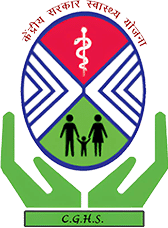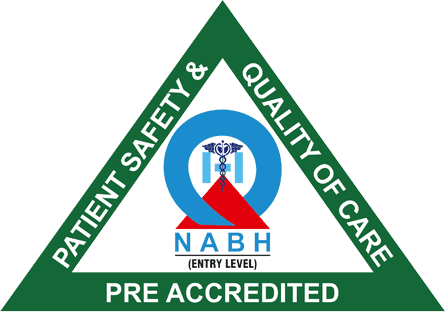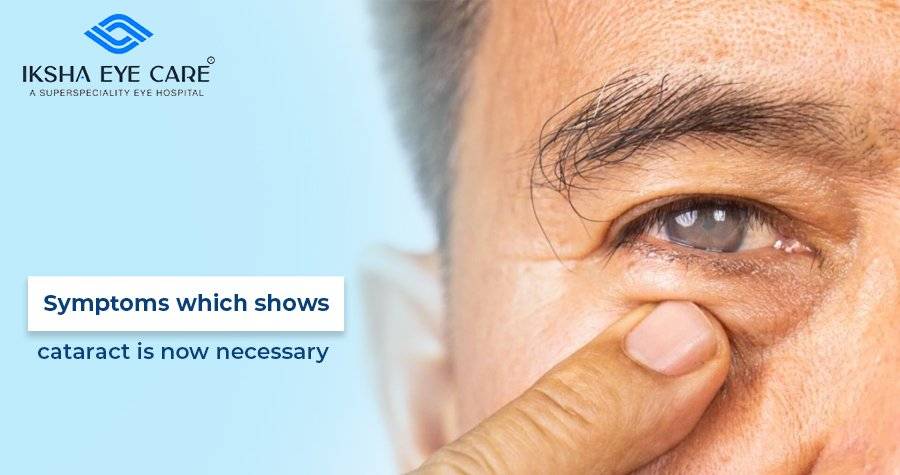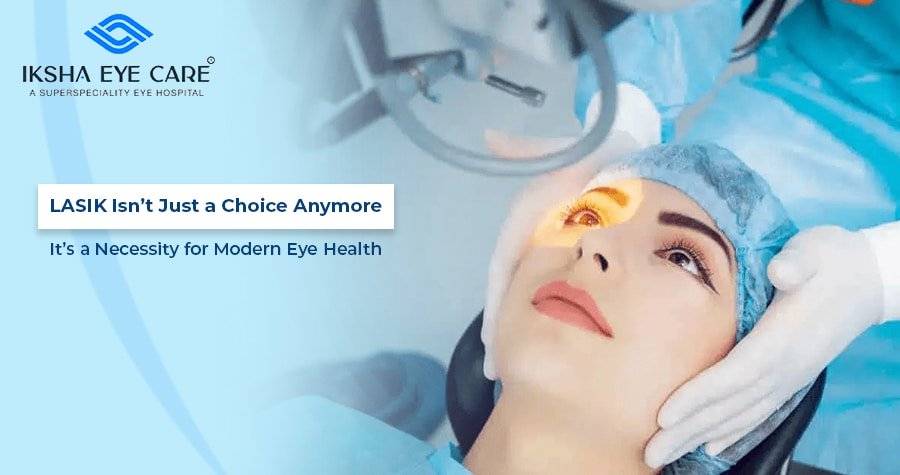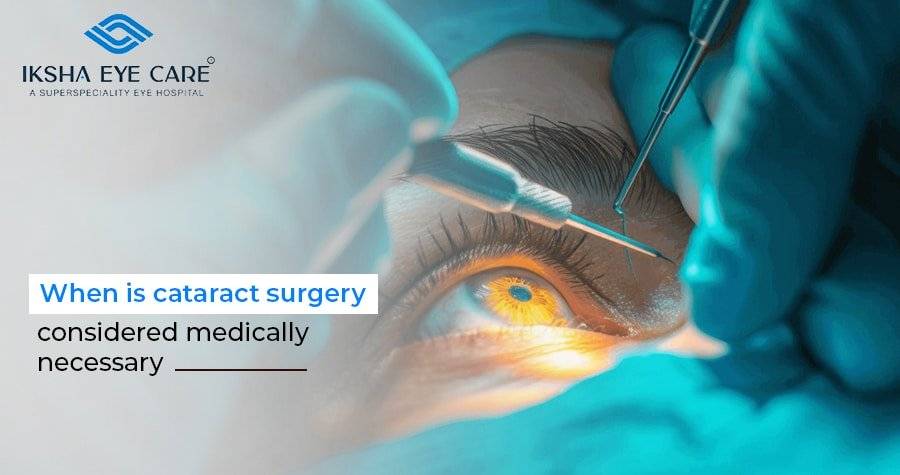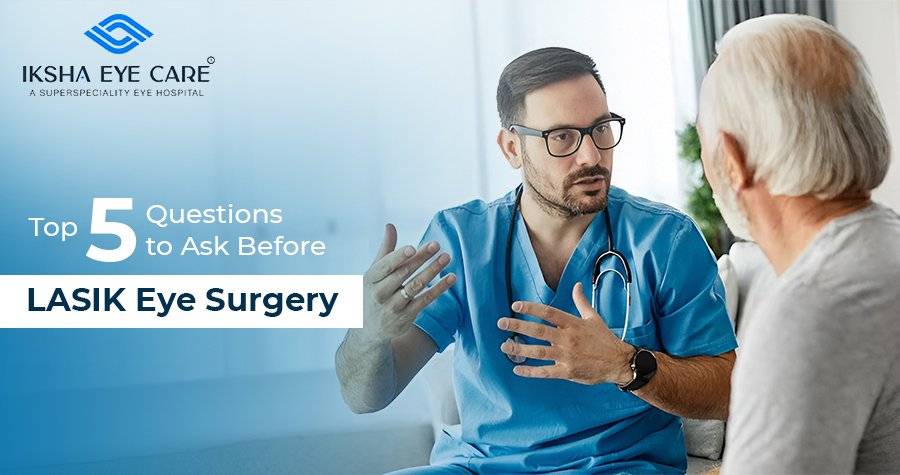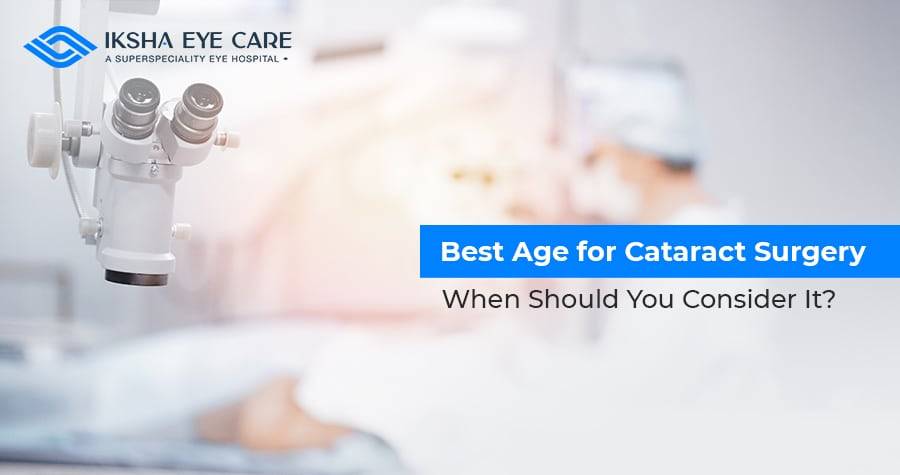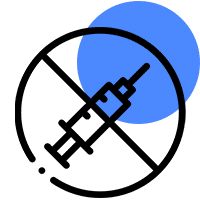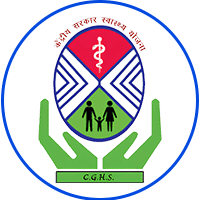Introduction – Understanding When Cataract Treatment Becomes Essential
Cataracts are one of the most common age-related eye conditions, yet many people overlook the early symptoms. When ignored, cataracts can gradually impact daily activities like reading, driving, or even recognizing faces. The key to preserving your vision is understanding the symptoms that indicate cataract treatment is now necessary.
At Iksha Eye Care, Mumbai’s trusted eye care center, patients receive comprehensive cataract evaluations, advanced diagnostics, and modern cataract surgery options. Their expertise ensures that cataracts are detected early and treated at the right time—to prevent permanent vision impairment.
This blog explains the warning signs, symptoms, and situations that clearly indicate it’s time to treat your cataract.
1. Blurred or Cloudy Vision That Keeps Getting Worse
A cataract begins when the natural lens of the eye becomes cloudy. Initially, the cloudiness may be mild but if your vision keeps getting blurry, foggy, or less sharp, it’s a major sign that cataract treatment is now necessary.
Common experiences include:
- Seeing as if looking through a foggy window
- Difficulty reading small text
- Struggling to recognize faces
- Needing more light for routine tasks
If these issues persist, a cataract evaluation at Iksha Eye Care can confirm whether surgery is needed.
2. Difficulty Seeing Clearly at Night
Night vision problems are one of the earliest indicators of cataracts.
You may notice:
- Poor visibility while driving at night
- Difficulty in dimly lit environments
- Increased visual discomfort in low light
When night-time visibility becomes risky, cataract treatment may be required to restore clear vision. Iksha Eye Care provides advanced assessments to determine the severity and its impact on your daily safety.
3. Increased Sensitivity to Light and Glare
Do bright lights, sunlight, or vehicle headlights suddenly feel too intense?
This happens because cataracts scatter incoming light, making your eyes hypersensitive to brightness.
Symptoms include:
- Pain or discomfort in bright sunlight
- Trouble looking at screens or LED lights
- Seeing halos around headlights
If sensitivity begins affecting your comfort or daily lifestyle, it’s a sign your cataract has progressed and needs attention.
4. Seeing Halos Around Lights
Patients often report seeing bright rings or halos around lights, especially while driving at night.
This is caused by the clouded lens refracting light improperly.
If halos appear consistently or interfere with driving, it’s time to get a cataract check from a specialist at Iksha Eye Care.
5. Frequent Changes in Eyeglass Prescription
Have you changed your glasses multiple times in one year?
This is a classic sign of cataract progression.
A cataract causes the lens to change shape and density, altering your refractive power. If your prescription doesn’t stabilize despite repeated upgrades, the issue is likely the lens not the glasses.
Iksha Eye Care offers detailed refraction and cataract diagnostic tests to confirm this.
6. Colors Appear Faded or Yellowish
Cataracts reduce color sharpness and alter color perception.
You may notice:
- Whites looking yellowish
- Colors appearing dull or faded
- Reduced contrast while reading prints or labels
When color vision becomes noticeably muted, it’s a clear sign the cataract is affecting your quality of life.
7. Double Vision or Ghost Images in One Eye
Double vision in a single eye also called monocular diplopia is a significant symptom of advancing cataracts.
You may see:
- Overlapping images
- Ghost shadows
- Blurred outlines
This should never be ignored and requires immediate cataract evaluation.
8. Difficulty With Routine Activities
When cataracts become advanced, they interfere with everyday tasks such as:
- Reading books or newspapers
- Driving safely
- Using mobile or computer
- Cooking or household work
If your vision issues affect your independence, it is time to consider cataract surgery.
Iksha Eye Care ensures a safe, painless, and advanced cataract surgery experience using modern phacoemulsification and premium lens implants.
9. Cataract Has Reached a “Mature” Stage
A mature cataract appears completely white or opaque. At this stage, vision becomes severely impaired.
Delaying treatment may cause:
- Increased surgical complexity
- Potential rise in eye pressure
- Higher risk of complications
Iksha Eye Care recommends early detection and timely treatment to avoid reaching this stage.
10. Your Eye Doctor Recommends Surgery
The most reliable indicator that cataract treatment is now necessary is the advice of an experienced ophthalmologist.
At Iksha Eye Care, cataract surgery is suggested only when:
- Vision affects daily life
- The cataract has progressed significantly
- You desire clearer, sharper vision
- Other eye conditions could worsen with delay
Their expert cataract specialists help you carefully decide the right time for surgery.
Conclusion – Don’t Delay Cataract Treatment When Symptoms Are Clear
Cataracts progress gradually, but the symptoms become more noticeable over time. If you’re experiencing blurred vision, glare, halos, poor night vision, or repeated prescription changes, it’s important to seek evaluation promptly.
Iksha Eye Care offers comprehensive cataract assessments, advanced diagnostics, and painless, modern cataract surgery helping you regain clear, bright, and comfortable vision.
FAQs
- What are the main symptoms that indicate cataract surgery is necessary?Blurred vision, glare sensitivity, faded colors, poor night vision, and frequent prescription changes are common signs that cataract treatment is now needed.
- Does Iksha Eye Care provide cataract evaluation and surgery?Yes, Iksha Eye Care offers complete cataract diagnosis and advanced cataract surgery options with modern lens implants.
- Is cataract surgery painful?No, cataract surgery is painless, quick, and usually completed in 15–20 minutes using advanced techniques.
- Can cataracts be treated without surgery?No, surgery is the only effective treatment once cataracts begin affecting vision significantly.
- When should I visit an eye specialist for cataracts?Visit an eye doctor if you experience persistent blurred vision, difficulty driving at night, glare, or dull color perception.

